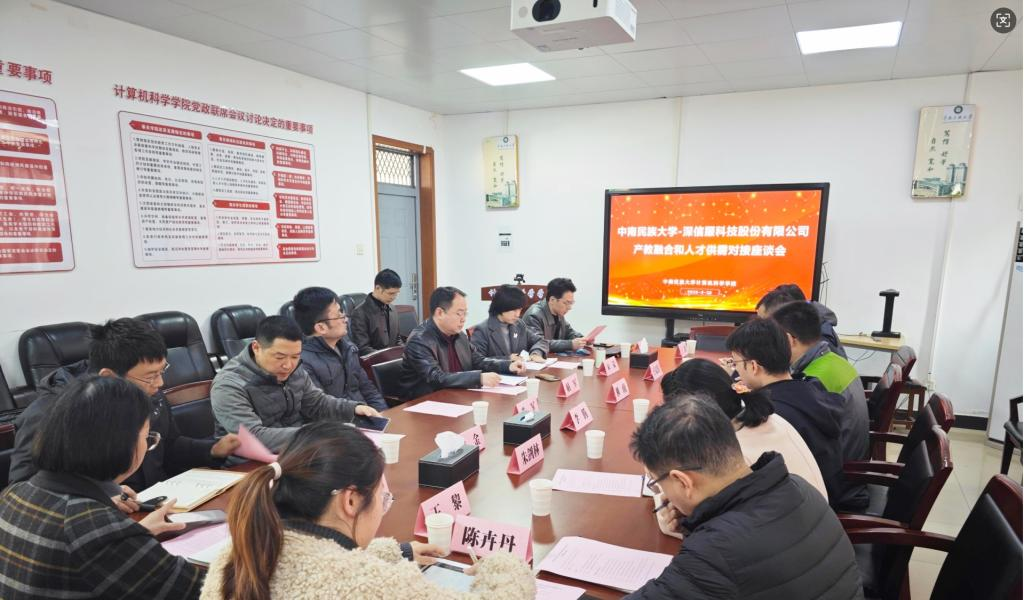Sangfor Technologies Inc. Visits Our University for Symposium on Industry-Education Integration and Talent Alignment
Author:Jun Wang,Jianlin Zhu Edit:Yangguan Sun Uploader:Menghuan Zhu Reviewer:Zuntao Ke, Yangguang Sun Published:2025-03-26 Views:
On March 20, Sangfor Technologies Inc. conducted a symposium with our university to deepen industry-education collaboration and enhance talent supply-demand matching. Attendees included Liu Nan, National Recruitment Director; Li Teng, Campus Recruitment Director; and Wang Dingtao, Regional HR Director for Central China from Sangfor. Representatives from the university’s Admissions and Career Services Office, School of Computer Science, School of Mathematics and Statistics, School of Electronic Information Engineering, School of Biomedical Engineering, and School of Law participated in the symposium, along with faculty advisors, Party branch secretaries, and academic program directors.
The discussion focused on strengthening partnerships between academia and industry, optimizing talent cultivation models, and aligning educational outcomes with enterprise needs. Zhang Xiao, Vice Dean of the School of Computer Science, chaired the event.

Symposium Scene Caption by the School of Computer Science
Tie Jun, the dean of School of Computer Science, highlighted the institution’s achievements in research and industry-education integration. He noted that the school has prioritized talent development through partnerships with leading enterprises, establishing joint training programs in recent years. “We aim to deepen collaboration with Sangfor to innovate talent cultivation models and accelerate the translation of research outcomes into practical applications,” he stated.
Liu Nan outlined Sangfor’s strategic advancements in cybersecurity, cloud computing, and artificial intelligence. Emphasizing the company’s commitment to academia-industry synergy, he proposed collaborative initiatives such as co-developing internship training bases, jointly designing specialized courses, and cultivating talent for high-demand sectors. “Aligning educational frameworks with industry needs is key to bridging the gap between talent supply and market demands,” he added.
Zhu Jun, Deputy Director of the Admissions and Career Services Office, advocated for shared talent demand databases and industry-tailored recruitment events to create cross-disciplinary career pathways for students in electronics, mathematics, biomedical engineering, and related fields. Li Teng, citing recent campus recruitment trends, suggested enhancing students’ practical skills through dual mentorship programs, industry project integration into curricula, and technical certification training to streamline corporate onboarding processes. Wang Dingtao reviewed lessons from Sangfor’s inaugural 2024 joint training program, pledging to prioritize hands-on skill development in the 2025 iteration.
Other attendees discussed discipline-specific strategies for curriculum reform and talent alignment. Participants concurred that aligning "enterprise demand" with “academic supply” would energize long-term mechanisms about industry-academia collaborative education and bolster regional digital economies. Both parties committed to enriching collaboration frameworks and fostering an innovative ecosystem for industry-education integration.